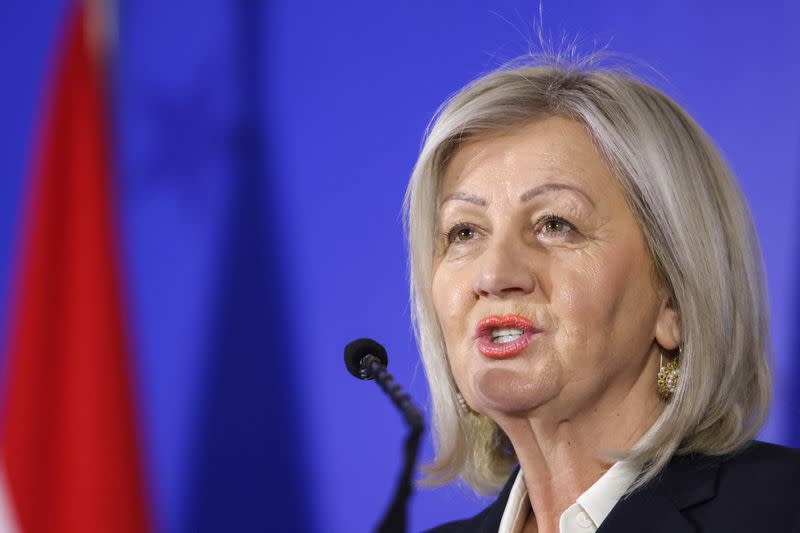EU envoys urge Bosnia to show reform progress by March deadline
By Daria Sito-Sucic
SARAJEVO (Reuters) - European envoys, headed by European Commission President Ursula von der Leyen, urged Bosnia and Herzegovina on Tuesday to accelerate reforms needed for the EU to open accession negotiations with the country in March.
"There is more work to be done, we need to see progress, especially ... adopted laws on the fundamentals of the EU accession, that means democracy and the rule of law," von der Leyen told a news conference during her visit to Sarajevo along with the prime ministers of Croatia and the Netherlands.
After Bosnia's national parliament last September passed several laws sought by Brussels, the EU in December considered whether to open accession talks with Bosnia along with Ukraine and Moldova.
But EU leaders decided they would only open the talks with Bosnia - which is marred by ethnic rivalry and secession threats - when it has achieved the necessary degree of compliance with membership criteria, with checks due in March.
Bosnia has to implement 14 priorities set by the Commission in 2019 which focus on democracy and functionality of the state, the rule of law, fundamental rights and public administration reform.
"EU accession is and always will be a merit-based process," said Dutch Prime Minister Mark Rutte. "A lot of work needs to be done before Bosnia and Herzegovina achieves the necessary compliance."
The Netherlands and Germany were the two EU countries most opposed to the EU's opening of accession talks with Bosnia before it fulfils the requested criteria.
Croatian Prime Minister Andrej Plenkovic said Tuesday's visit was intended to encourage Bosnia's parliament to pass key outstanding laws - on tackling money laundering and conflicts of interest and on courts - by a March deadline.
Von der Leyen said Bosnia, like other Western Balkan countries, was offered under the EU growth plan integration into the European single market that could unlock 1 billion euros for the country and raise its economic output by 10%. Access to the funds is tied to implementation of economic reforms.
(Reporting by Daria Sito-Sucic; Editing by Gareth Jones)

 Yahoo News
Yahoo News 

